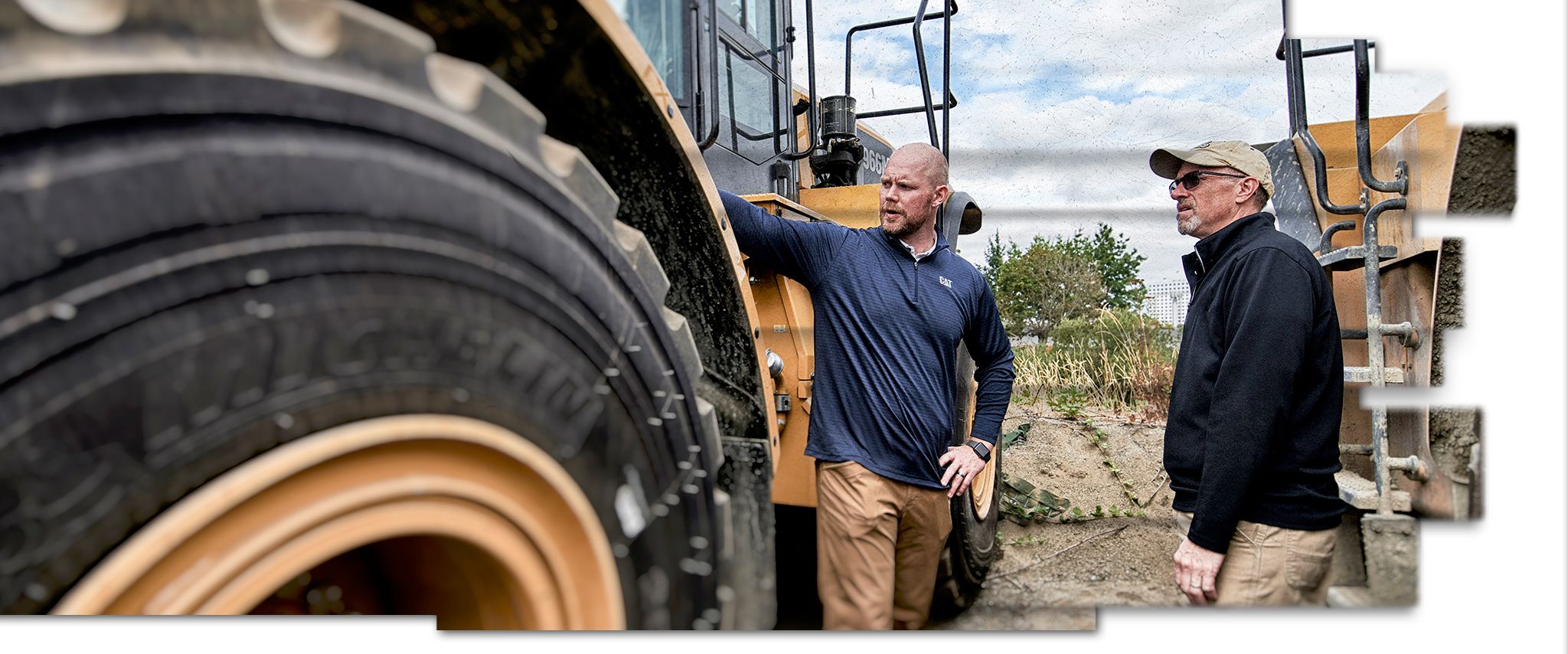If you already have an existing account with another Cat App, you can use the same account to sign in here.
One Account. All of Cat.
Your Caterpillar account is the single account you use to log in to select services and applications we offer. Shop for parts and machines online, manage your fleet, go mobile, and more.
Account Information
Site Settings
Security
Why Consignment May Be the Best Option
CONSIGNMENT, DEFINED
Here’s the official definition from Merriam-Webster: “Consignment is an arrangement in which an item is placed in the care of another until purchased by a buyer. Until the item is sold, the consignor still claims ownership and is still responsible for anything that may happen to the item while it is in the care of the consignee.”
How does that work in used equipment terms? Say you consign your used D5 dozer to your local Cat dealer, who offers to sell it for you at the dealership. That makes you the consignor and your dealer the consignee. No money is exchanged, and no purchase is transacted. You still own the D5. One day, another contractor purchases the dozer. You receive the proceeds, minus an agreed-upon consignment fee for your dealer’s service as the seller.
4 ways consignment pays off
1. It requires less time and effort.
Attempting to sell a machine privately — whether you buy an ad in a newspaper, list it online or put a “for sale” sign in the window — requires a lot of work. Even if you list the machine for free, you’ll still spend valuable time contacting interested buyers, lining up visits to inspect the machine and negotiate delivery.
With consignment, you can stay focused on running your business instead. Your Cat dealer handles all the marketing and logistics, treating your machine just like one for sale on the dealer lot. Most dealers have used equipment yards in highly visible places — close to a main road or near the main entrance, for example — with signs and billboards to attract traffic. (Some even assign a yard solely to consignments.)
Cat dealers also have dedicated marketing departments with the experience and resources to promote equipment in both traditional and online marketplaces. Many also offer competitive financing, which may make your machine even more attractive to certain buyers.
2. It broadens the buyer pool.
Selling privately may limit your potential buyers to a specific geographic region. Your Cat dealer has connections not just locally, but also nationally and internationally through the global Cat dealer network. Consignment allows you to take advantage of this bigger audience — that’s particularly important if you’re trying to sell a job-specific piece of equipment or a model that’s less popular. Plus, access to more potential buyers may help you sell your used machine more quickly.
3. It puts you in control.
With consignment, your dealer will provide a real, market-based evaluation so you can make an informed decision about where to set your sales price. Then, it’s your choice to negotiate a deal (or not).
4. It gives you more options.
Different Cat dealers handle the consignment process differently, but they’re all open to customizing consignment agreements with options to fit your specific needs. Your dealer may agree to buy your machine outright if it doesn’t sell after a certain time period, for example, or let you keep using the machine while it’s on the market. In that case, you’ll likely provide weekly updates on hours and condition and work with your dealer to schedule time for potential buyers to inspect the equipment.
Are you ready to sell?
If your goal is to sell your used equipment fast and at the highest possible price — and whose isn’t? — then it pays to consider consignment.
When an older machine in your fleet reaches replacement, chances are you'll trade it in, rebuild or repair it, look for auction options, or try to sell it yourself. There’s another option to consider, however: consignment through your local Cat® dealer. Here’s how it works — and how you can benefit.
(NOTE: Not all Cat dealers offer consignment, and the consignment process varies by dealer. Check with your local dealer to see what trade option works best for you.)



